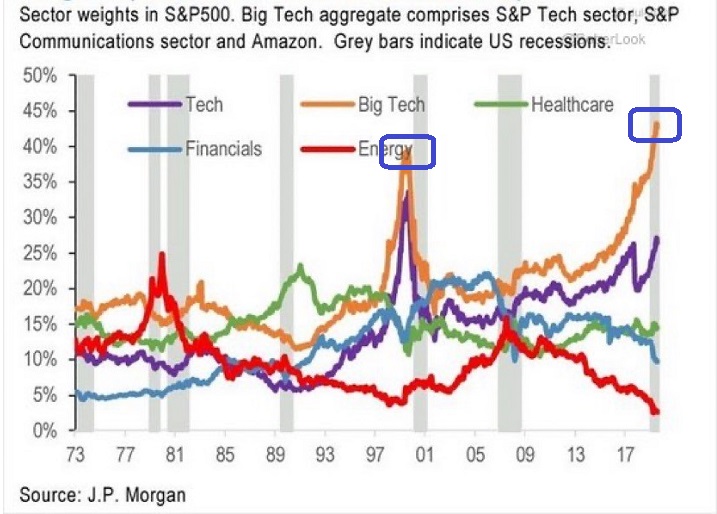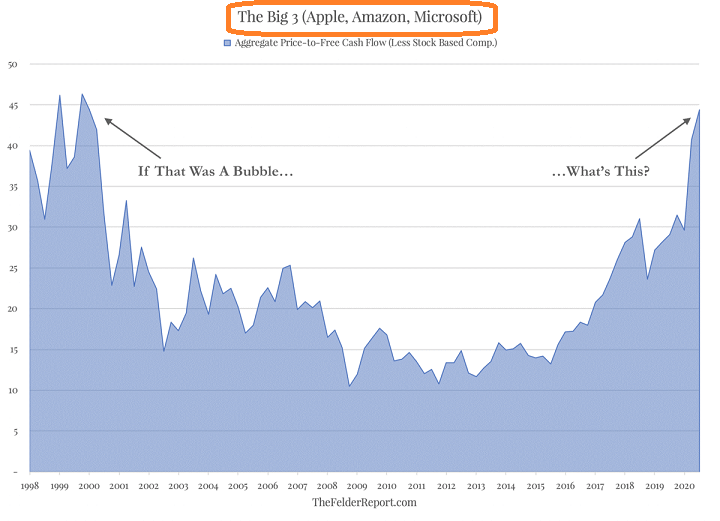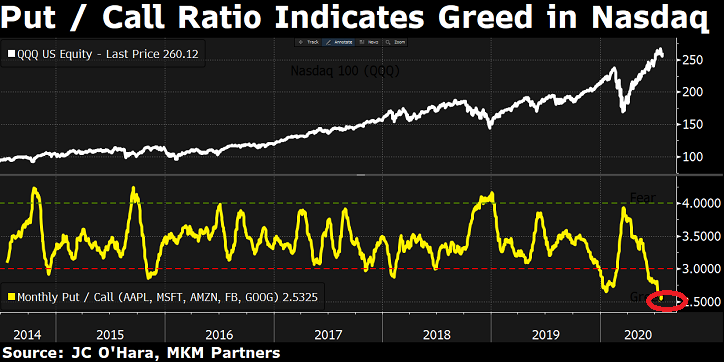When you combine the technology sector with the likes of Facebook, Google and Amazon, you’re defining the mega-cap space. Some refer to it as “Big Tech.”
The parabolic move higher for Big Cap Tech in 2020 is extraordinarily similar to what investors experienced in 2000. Of course, two decades ago, the incredible gains were eventually followed by titanic losses.

Analysts and investors alike readily identify the year 2000 as the most egregious stock bubble in U.S. history. Yet, as former hedge fund manager Jesse Felder points out, 2020 stock valuations are routinely regarded as acceptable.

Indeed, Wall Street gives plenty of reasons to put aside your concerns and invest at the loftiest of levels. Here are just a few of the popular excuses that are out there:
1. Bonds and other income producers do not offer enough in the way of yield. In the current world, then, there is no alternative (TINA) to stocks.
2. The pandemic caused the recession. A vaccine will fix everything. Then valuations will look fair two years or three years from now.
3. Disruptive innovation needs to be priced differently. Next-Gen Internet, Fintech, Genomics — traditional valuations do not capture the shift from the old economy to the new economy.
4. The Fed is backstopping every asset. If the market slips, the Fed will simply pump in more liquidity. And if that does not work, the Fed will buy stocks.
5. You’re in it for the long term. Over time, no matter when you buy, you will make money.
Each of the above-mentioned excuses is flawed. Zero-percent yielding cash, precious metals, Treasuries and more can be alternatives at different times for different reasons. Federal Reserve policy making has a long history of error. And the same notion of “New Economy” valuation was used to justify the 2000 stock bubble as many are employing here in 2020.
The simple truth is, Big Tech represents more than 50% of the Nasdaq. One turn down in Big Tech — one coordinated profit-taking endeavor — could slam the Nasdaq as well as the S&P 500.
The level of unbridled optimism (a.k.a. “FOMO”or “Fear Of Missing Out”) is staggering. The greed related to Facebook, Apple, Amazon, Microsoft and Google is particularly noticeable in the absence of protection via protective puts. Everyone wants to be long FAAMG.

Would you like to receive our weekly newsletter on the stock bubble? Click here.
